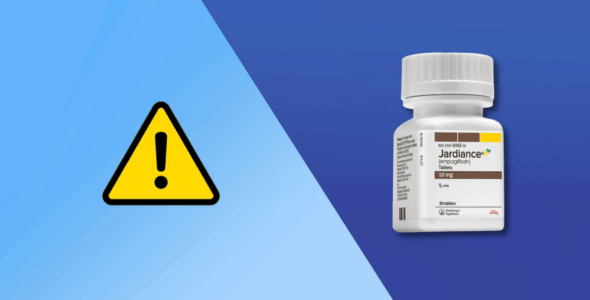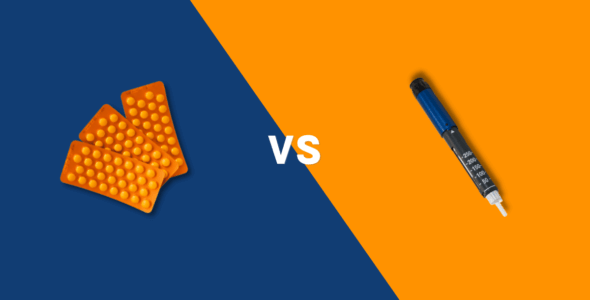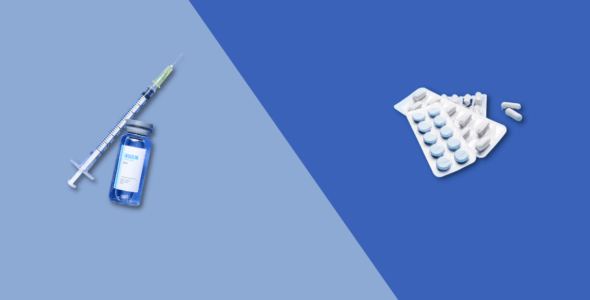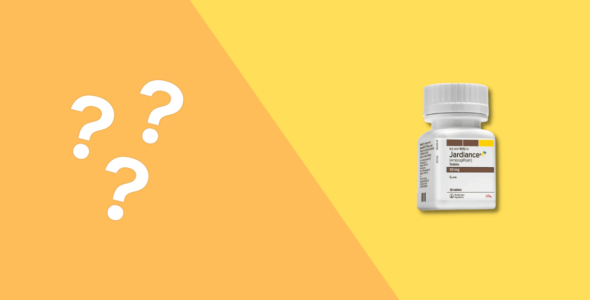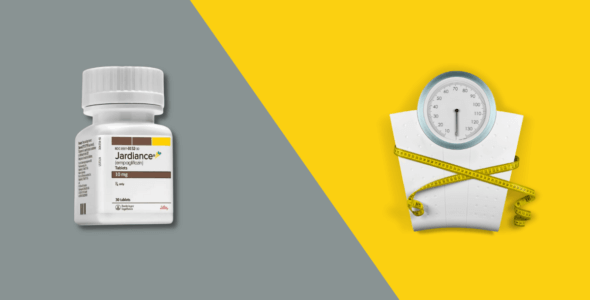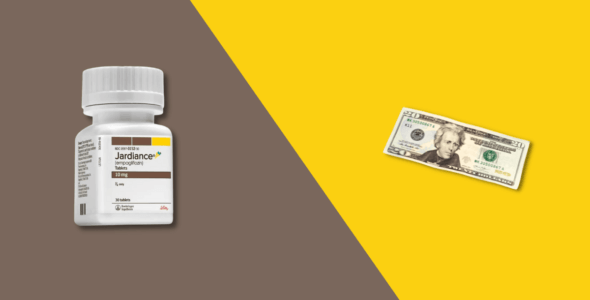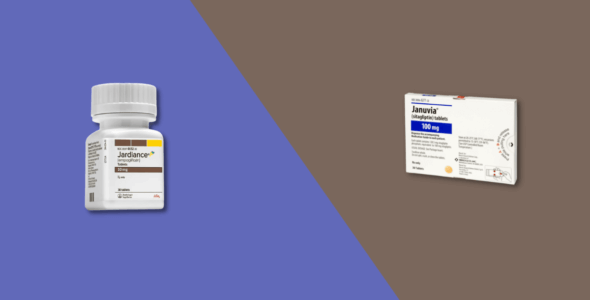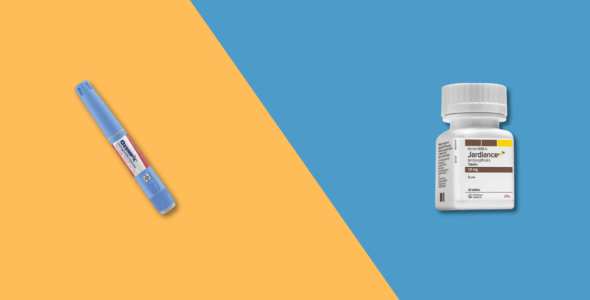Jardiance and Invokana are brand names of oral prescription drugs used to lower blood sugar in people with type 2 diabetes also called type 2 diabetes mellitus. In type 2 diabetes you do produce insulin, but the body can not use it effectively. This is known as insulin resistance. Research does not give us a clear idea why some people develop this and others don’t, but lifestyle factors, e.g. lack of exercise and excess body weight can contribute to type 2 diabetes. Controlling high blood sugar levels is important because it reduces the risk of developing health complications such as kidney problems, nerve damage, and lower-limb amputations. If you have type 2 diabetes (T2DM), you are probably aware of the number of diabetes medications available. We will focus only on two drugs – Jardiance and Invokana to give you an understanding of how they compare.
What kind of drugs are Jardiance and Invokana?
Invokana contains the active ingredient canagliflozin and is manufactured by Janssen Pharmaceuticals. Jardiance contains the active ingredient empagliflozin and is manufactured by Boehringer-Ingelheim. Both medicines are classed as SGLT 2 inhibitors (sodium-glucose cotransporter 2) and are FDA-approved to treat type 2 diabetes in combination with improved diet and exercise. Jardiance and Invokana can not be used to treat type 1 diabetes or diabetic ketoacidosis.
Jardiance and Invokana work in the same way by blocking the sodium-glucose cotransporter 2 (SGLT2) protein in the kidneys. As a direct result, this prevents blood glucose from being reabsorbed by the kidneys, and the amount of sugar in the bloodstream is reduced.
Which conditions can be treated with Jardiance and Invokana?
Jardiance and Invokana are both used to:
Jardiance is also used to:
- Reduce the risk of cardiovascular death in adults with type 2 diabetes and established cardiovascular disease
Invokana is also used to:
- Reduce the risk of major adverse cardiovascular events in adults with type 2 diabetes mellitus and established cardiovascular disease
- Reduce the risk of end-stage kidney disease, doubling of serum creatinine, cardiovascular death, and hospitalization for heart failure in adults with type 2 diabetes mellitus and diabetic nephropathy with albuminuria
What are the potential side effects of Jardiance and Invokana?
As both these drugs belong to the same group of medications some of their side effects will be similar but there are also some differences as outlined below.
Common side effects that occur with both Jardiance and Farxiga
- Vaginal yeast infection
- Genital yeast infection in men
- Raised cholesterol levels
- Urinary tract infection (UTI)
- Increased urination
- Nausea
- Common cold
- Flu
More serious side effects that can occur with both drugs are:
- Low blood pressure
- Diabetic ketoacidosis
- Kidney problems
- Serious UTIs
- Infection near the genitals
- Low blood sugar (hypoglycemia)
- Allergic reaction
- Dehydration
Invokana has additional warnings for lower limb amputation and risk of bone fracture. Clinical trials have shown there was an increased risk of lower-limb amputations in patients taking Invokana, patients with established cardiovascular disease, or those who were at risk of cardiovascular disease.
What are the possible drug interactions of Jardiance and Invokana?
Both Jardiance and Invokana interact with:
Invokana interacts with Lanoxin (digoxin) which is used to treat various heart conditions. It also interacts with drugs that are UGT (uridine glucuronyl transferases) inducers such as rifampin, phenytoin, phenobarbital, and ritonavir.
Is Jardiance more effective than Invokana?
In a 6-month study, over 900 type 2 diabetic patients were treated with Jardiance alone. The study found lower HbA1c levels (a measure of glucose control over the past few months), lower fasting plasma glucose, and lower weight. Similar results are seen with Jardiance when taken in combination with other diabetes drugs such as sulfonylureas.
A study over 6 months, treating nearly 600 type 2 diabetic patients with Invokana alone resulted in lower HbA1c levels, lower fasting and postprandial (after a meal) glucose, lower weight, and lower systolic blood pressure. Like Jardiance, when studied in combination with other diabetes drugs or with insulin, Invokana also had a similar effect of improving numbers such as HbA1c.
The most effective medication should only be determined by your healthcare provider, who can look at the full picture of your medical condition and give you the best medical advice.
Which other drugs are in the same drug class as Jardiance and Invokana?
Jardiance and Invokana are SGLT 2 inhibitors. Farxiga (dapagliflozin) is also part of the same drug class. These drugs block the SGLT2 protein in the kidneys.
Can you take Jardiance or Invokana on an empty stomach?
Yes. These drugs can be taken with or without food as directed by your doctor. Jardiance and Invokana are unlike other diabetes medications that need to be taken around mealtimes.
When should you stop treatment with Jardiance or Invokana?
Managing diabetes is a long-term commitment to using drugs, diet, and lifestyle to reduce complications. Talk to your doctor about your plan to manage your type 2 diabetes.
What is Invokamet?
Invokamet is a combination of Invokana (canagliflozin) and metformin. Invokamet is a non-insulin medication. It is an oral tablet you take by mouth. It contains two active ingredients that help to lower your blood glucose in type 2 diabetes.
